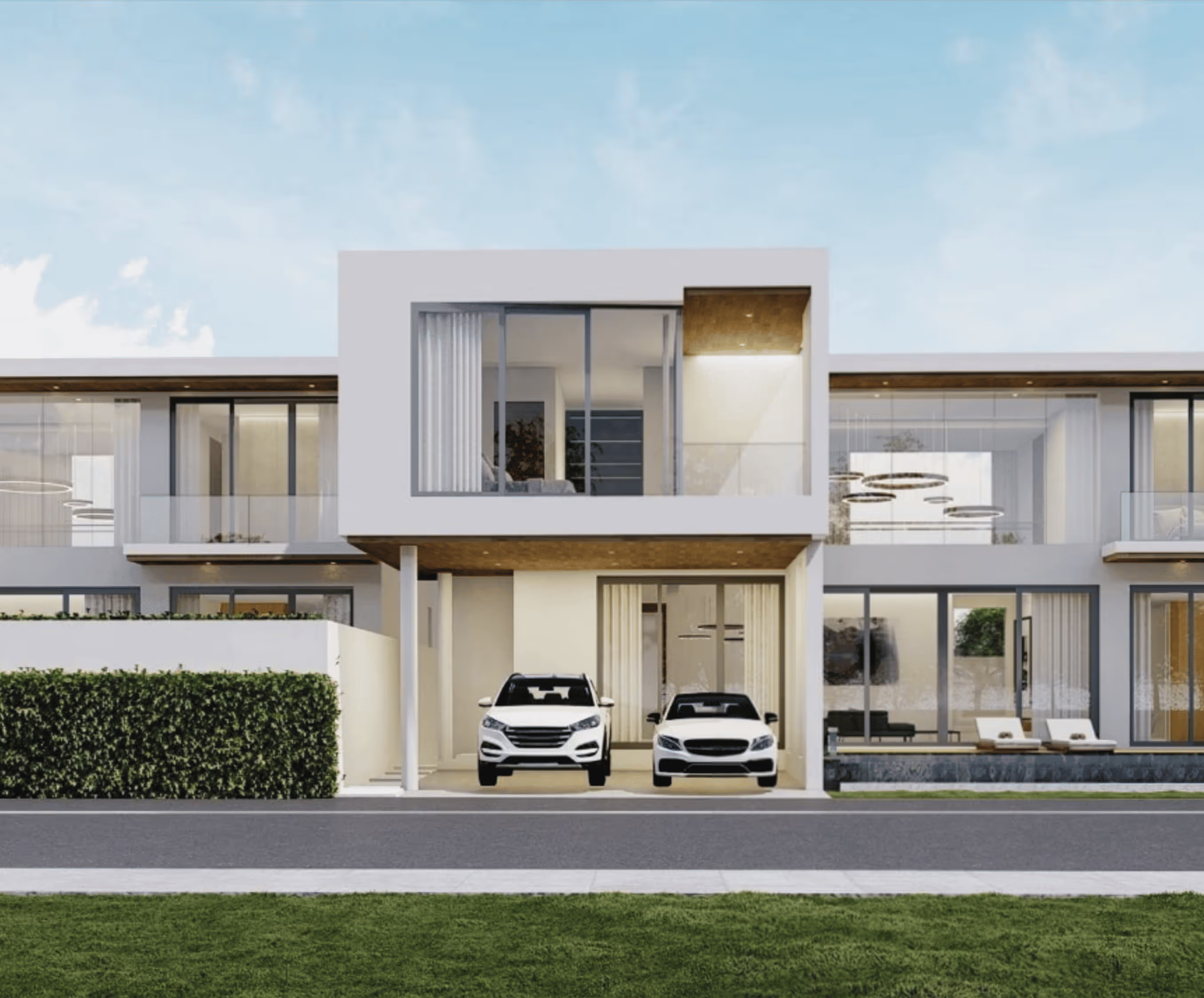


Well-informed investment decisions in Thai real estate
We help you invest in the most profitable and reliable property developments based on an analysis of over 100 metrics
Get a Quote10-Year Expected
Return



What is the operation of our analytical system
We examine the market from an investor’s perspective and apply comprehensive approach to evaluate the attractiveness of your investment and select the best investment option
Comprehensive analysis
We evaluate over 100 parameters for each project across four key dimensions

Project selection
We compare projects using a unified evaluation logic and tailor recommendations to your individual preferences

Business case calculation
We build a 10-year financial model, factoring in all expenses and projected cash flows
- Rental income$0
- Price increase by completion date$0
- Sales proceeds$0
- Contract payments$0
- One-time payments$0
- Regular payments$0
- Income tax$0
- Sales tax$0
- Product typeInvestment
- Payment formInstallment 0%
- Profitability programRental pool
- Gross rental yield14%
- First-year operating profitability12%
- IRR15.3%
- Average annual ROI12%
- Total ROI205%
- Initial investments—$116,407
- Recurring payments—$32,590
- Rental cash flow$155,024
- Sales revenue$192,291





Why do foreign investors choose Thailand
Our Approach
Define the client’s investment objectives and priorities
Leverage unique analytics algorithm to select the right projects
Build a detailed and transparent financial model, considering all types of expenses and realistic returns
Coordinate property visits offline or online and negotiate optimal terms to optimize for cash flow
Consult with document signing and payment facilitation
Support property management (facility management, visas, banking, legal, and tax assistance)
We are professionals with genuine experience
Our founders held key positions at leading companies such as McKinsey, Procter & Gamble, PayPal, Yandex, SMLT, MTS, and Netology — bringing deep expertise in real estate, consulting, education, and finance

Serial entrepreneur, founder of Netology and Foxford, former board member of the largest real estate developer in Europe
12+ years developing the real estate practice at McKinsey, including 3 years specializing in Southeast Asia; ex-executive director at Europe’s largest real estate developer
Over 15 years of leadership experience at PayPal, P&G, Yandex, and several fintech projects; ex-executive director at Europe’s largest real estate developer
We’ve received your request, and our team will be in touch shortly!

Real estate purchase
Foreigners can:
— Purchase a condominium in full ownership (Freehold)
— Obtain long-term leasehold rights on land (Leasehold)
— Own a building constructed on leased land
Restrictions apply to other property types, but ownership can be arranged through a Thai company in such cases.
Freehold refers to full ownership of property without time limits. The owner can sell, rent out, or pass the property on as an inheritance.
Leasehold is a long-term lease agreement for 30 years, with the option to renew twice for an additional 30 years each, allowing a total leasehold period of up to 90 years. Leasehold rights can also be sold, rented out, or inherited.
The choice of ownership type depends on the purpose of purchasing the property:
Leasehold (long-term lease): This is ideal for those considering the property as an investment with the potential for resale. This form of ownership simplifies the resale process and can reduce tax expenses.
Freehold (full ownership): This is suitable for those planning long-term ownership or seeking maximum legal protection for their rights. Freehold is often chosen for personal residence or long-term investment.We can also assist in obtaining full ownership if you wish to purchase land.
In the primary market:
1. Passport
2. Reservation agreement
3. Sale and purchase agreement
4. Receipt from the developer confirming the transfer of funds from abroad
In the secondary market:
1. Passport
2. Sale and purchase agreement
3. Ownership document (Chanote)
4. Certificate confirming payment of all taxes and fees related to the property
Yes, ensuring legal transparency is one of the key steps in a transaction. The company’s legal department protects our clients’ interests, conducts a thorough legal review of all developer documents, and ensures the agreement complies with Thai law.
Yes, the transaction can be conducted via a power of attorney. The power of attorney must be certified by a lawyer or notary. This option is convenient if you cannot be physically attend at the Land Department for the transaction registration.
The buyer receives several documents, including:
— Sale and purchase agreement
— Ownership confirmation
— Tax and registration receipts
— Certificate of compliance for new constructions
These documents confirm the transaction's legality and the new owner's rights.
Visa and legal aspects
Owning a property does not automatically guarantee a visa, but in some cases, it has the following advantages:
Investor visa: Foreigners who have invested at least 10 million baht in real estate, government bonds, or bank deposits can get an annual visa.
Elite Visa: a program that provides stays of up to 20 years for a fixed fee. Owning a property can be an additional advantage for obtaining this visa.
Residence permit: Owning a property may be one of the criteria when applying for a resident visa.
There are several types of visas required Thailand, depending on the purpose the.
Each visa provides different rights, including the ability to work, extend your stay, or invest in the economy:
Visa on Arrival (VoA): for 15-30 days for citizens of certain countries.
Tourist Visa (TR): for up to 60 days, renewable by 30 days.
Non-Immigrant Visa (Type B, O, or ED): valid from 90 days to a year, suitable for business, work, family visits or studies.
Retirement Visa: intended for people over 50 years of age with proof of financial stability. It is issued for 1 year with the possibility of annual renewal.
Investment Visa: issued when investing in real estate, the economy or a bank deposit. It is issued for 1 year with the possibility of annual renewal.
Elite Visa Program: provides a long-term stay in Thailand with multiple entries and other benefits. It provides a stay of 5 to 20 years, depending on the chosen program package.
Digital Nomad Visa: gives the right to reside for 5 years with multiple entries and exits, and it is designed for remote workers and freelancers.
A Permanent Residence permit can be obtained if you have lived in Thailand on a long-term visa for at least 3 years. The permit allows you not to renew your visa every 90 days and to move freely around the country. The main conditions are:
— stable income
— ownership of assets, such as real estate
— payment of taxes
Owning a property can strengthen your application.
Citizenship is more difficult to obtain. The main conditions are:
— living in Thailand for at least 5 years with a permanent residence permit
— financial stability and confirmed investments in the economy
Owning a property can be seen as one of the advantages, but it is not the main criterion.
Financial and legal issues
Taxes and fees in Thailand depend on the type of property, type of ownership, and terms of the deal.
Primary real estate. The buyer usually pays fixed fees, the amount of which depends on the type of registration (Freehold or Leasehold).
Secondary real estate. Resale conditions vary depending on the original contract and the form of ownership. Standard taxes and property transfer fees apply to Freehold. Leasehold has simplified schemes with fixed payments.
Once you buy a property in Thailand, you may experience the following recurring costs:
— Utilities: electricity, water, internet
— Maintenance Fee: monthly or annual payment for the maintenance of common areas, such as swimming pool, security, cleaning
— Real estate tax: depends on the purpose of the property, ownership and value
— Repair and maintenance: minor repairs, such as maintenance of air conditioners and other systems
— The management company, if the property is leased: the management fee is calculated as a% of income.
Some banks offer mortgages for foreign buyers, but they are difficult to obtain. Usually, the bank requires a down payment of 30-50% and proof of income. But there is an alternative — installments from developers with a flexible payment schedule, which simplifies the purchase process.
Opening an account is not necessary, but it makes it easier to manage finances, pay utility bills, and maintain real estate. A bank account is needed to obtain a mortgage if it is issued through a Thai bank.
Concierge service
The concierge manager provides a wide range of services, including:
Booking and arranging services: car hire, restaurant reservations, tickets for events and excursions.
Ensuring household comfort: organizing cleaning, minor repairs, delivering groceries and other goods.
Leisure planning: assistance in choosing places for recreation, sports activities, or family activities.
Transaction support: organizing property viewings, assistance in preparing documents, support at the transaction stages.
Counseling on local life: recommendations for schools, medical institutions, fitness centers, children's clubs.
To find service personnel, you can contact a concierge manager who:
— will recommend trusted specialists from the agency's database, taking into account your requirements: language, work experience, professional skills
— organizes interviews and tests of candidates' qualifications
— will help with the conclusion of contracts and the preparation of legal documents
.avif)

